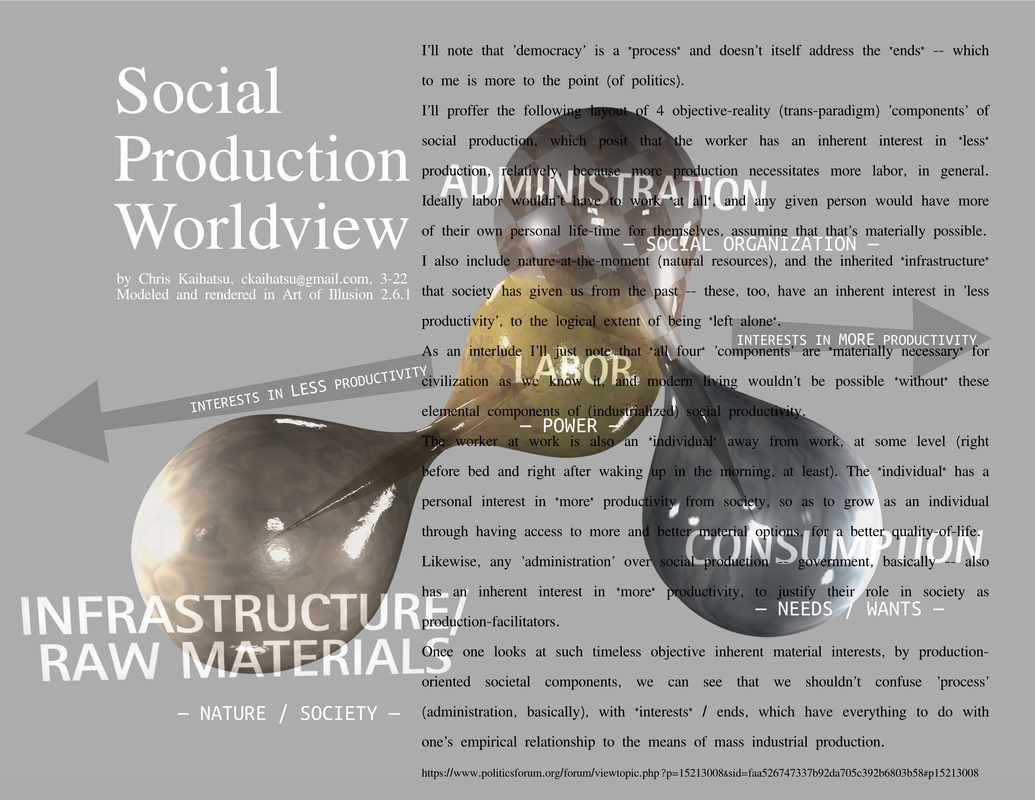BlutoSays wrote:That NEVER works.
No, it works perfectly fine for products and services that are natural monopolies, like water supplies, sewers, roads, electric power grids and natural gas distribution, policing, military defense, etc.
The bigger things get, the more ineffective and bureaucratic they get.
I see. I guess that must be why people mostly live in small, separate communities of a few dozen individuals, and not in large nation-states comprising tens or hundreds of millions of people: the small communities have outcompeted the large nation-states.
Oh, no, wait a minute, that's right: here in the real world, the exact opposite has happened.
Economies of scale tip over when the state gets involved, because there's no drive forward and the people who love the state hate one thing: competition.
But there is competition
between states, and the inefficiently managed ones get outcompeted. Seems you "forgot" that little detail. Indeed, if all the inefficient little states were not being protected by bigger ones through the international order, they would all be conquered and absorbed into large ones, for, in Dr. Strangelove's delicious phrase, "reasons which must be all too obvious at this moment."
Competition is destructive, but it also makes things better through (relatively) quick change. Have you been to your local DMV? You want that for production?
Your evidence that private firms would do a better job of issuing driver's licenses, etc....?
Oh, no, wait a minute, that's right: you don't have any.
In fact, the evidence is that private firms would just enable worse drivers to obtain licenses, increasing road accidents, because it is profitable to do so. They get the money from the bad drivers, but they don't bear the cost of the resulting accidents. Private interests don't serve the public interest in such cases.
You are also conflating the effect of public sector unions with the effect of public provision of services. Union monopolies are bad enough in the private sector. But at least there, they drive their employers out of business and thereby delete themselves. Public sector union monopolies just take and take and take because their employers can't go out of business (except through war, revolution, or societal collapse).
Think of it this way. ONE entity, the *state* as you call it decides it will control all production of electric razors.
Irrelevant example. Electric razors are not a natural monopoly. We benefit from competition in the supply of electric razors, but not in the provision of water, roads, policing, etc. When Margaret Thatcher privatized water supplies in the UK, the
private monopoly suppliers
cost more and provided worse service than the public ones. When market conditions enable meaningful competition, competing private providers are more efficient. But there is no credible empirical evidence that when market conditions are such that private providers can't meaningfully compete with each other, they produce goods and services more efficiently than public ones. None. In fact, in the USA, the average cost of electric power is lower and service better in areas served by publicly owned monopoly power utilities than in areas served by privately owned ones.
So top-down rule from ivory towers never works, because they can't possibly get the data they need to make the decisions that have the best outcomes.
GARBAGE. Modern technology makes it a trivial matter to get all the data needed for such decisions. It's more a question of the motivation to use that data to make decisions that serve the community's interests rather than the decider's interests. Sure, when the deciders have to compete with each other for customers' business, Smith's invisible hand ensures they serve the public interest. But when private interests have natural monopolies (or artificial monopoly privileges), they have no interest in doing anything but extracting the maximum rent. At least publicly owned natural monopolies are responsible to voters.
They would make too many Norelco razors and they would go to waste because no one would want them. Then there would be misallocations, shortages and artificial dislocations that reverberate throughout the economy. They would try to correct slowly because that's what bureaucracies do and they would have NO pressure from outside forces to fix it. They would understeer, oversteer and break other things and cause unitended consequences.
All errors that private suppliers also commit when there is no meaningful competition to discipline them.
They can never do what the free market can.
You need to Google "market failure" and start reading.

















 - By Istanbuller
- By Istanbuller